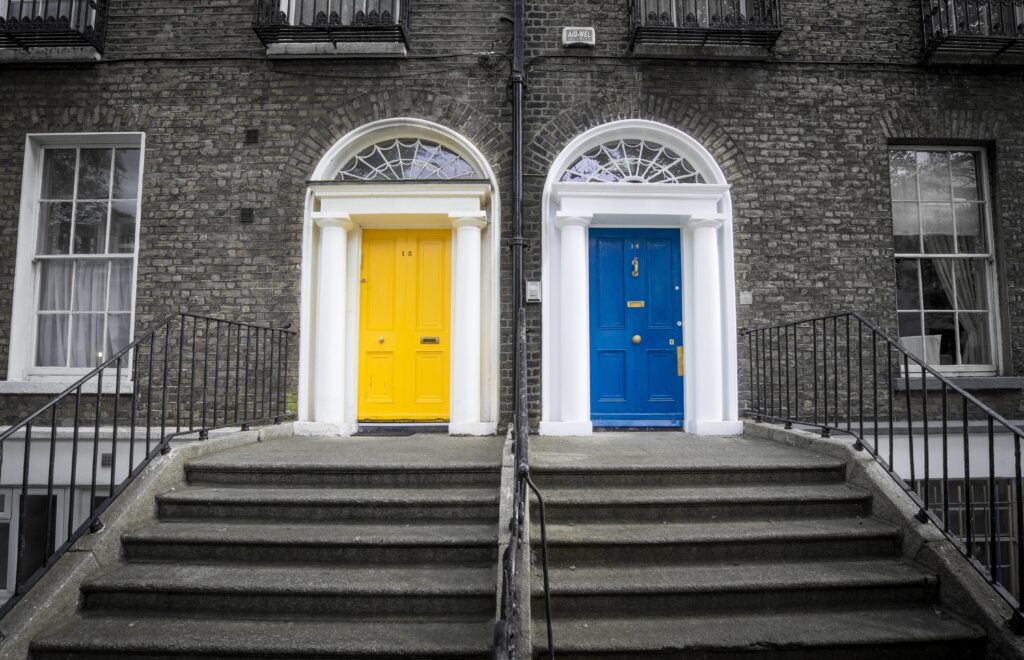Arthur Brooks’ new book, Love Your Enemies, discusses the political discord in America today and how we might form healthier communities.
When I heard that Arthur C. Brooks’ latest book, Love Your Enemies, was about why we should be nice to people, I thought to myself, “Of course you should be nice to people. Why do you need to write a book about it?”
But then I read a Washington Post column by Megan McArdle about how she was spending time before Christmas in the hospital with her ailing mother as thousands of people were spewing bile against her on the Internet. And then I realized that America has a problem.
For as long as there have been newspaper editorial pages, people have felt compelled to write letters about columnists. In the 20th century, these were called “crayon letters” because, the joke went, the people who wrote them didn’t know how to type (and loved exclamation marks). But now social media has enabled this form of hate to multiply exponentially. McArdle’s column attracted over 1,400 shrill and angry comments.
Brooks’ book, then, is a necessary corrective. Brooks, who wrote this book while he was president of the American Enterprise Institute but is now a Harvard government professor, makes a convincing case that the ongoing political cold war is dramatically increasing the stress levels of individuals on both the left and right. He cites the work of University of Washington professor John Gottman, an expert on marriage, who says that couple who constantly fight produce so many stress hormones (cortisol and adrenaline) that, on average, they die 20 years earlier than couples whose marriages are less contentious. People who are feuding on social media, Brooks argues, are almost as stressed out as these couples.
Brooks started his career as an expert on charity with his book Who Really Cares, and quite a lot of Love Your Enemies has something to do with charity and nonprofits.
For example, he notes that one reason why people are so eager to fight on social media is that they feel part of a cause. He notes, citing the work of Nicholas Eberstadt, Anne Case, and Sir Angus Deaton, that far too many Americans—having lost their jobs and their identities as someone who is productive and self-reliant—drift into new identities where they feel part of a community, albeit a community whose existence is devoted to fighting a faceless enemy.
But he notes that this sort of identity can be broken down if people have to work with those who they think they despise. Here he cites the work of Fr. Greg Boyle, a Los Angeles priest whose nonprofit Homeboy Industries successfully employs 180 former gang members each year to provide a wide variety of useful services, from tattoo removal to a renowned bakery. But the first task of anyone who joins Homeboy Industries is to make sure that a gang member works with members of rival gangs. That ensures that a gang member learns that there’s more to life than his pride.
“It’s not all about me,” a Homeboy Industries employee says in a promotional video for the nonprofit. “It’s about my family and loved ones.”
This is the key to ending culture wars: realizing that “it’s not all about me,” that life is greater than the imperial egotism of our opinions, that what is more important than brand building or choosing sides is the simple joy of helping others.
Brooks cites the research of Paul Zak who teaches “neuroeconomics” at Claremont Graduate University. Zak hooks his subjects up to monitors and shows them a video of a two-year-old with brain cancer who is at St. Jude’s Children’s Research Hospital. The video says that the child is in chemotherapy and can temporarily lead a normal life. He found that people who watched the touching video emitted oxytocin, a hormone that makes people feel “more trustworthy, generous, charitable, and compassionate.”
Zak conducted another experiment in which he showed subjects 16 public service announcements from Great Britain. Some of the subjects inhaled synthetic oxytocin while watching the PSAs, while others inhaled a placebo. He found that the people who were inhaling oxytocin donated to 57 percent more of the charities and donated 56 percent more money than those who inhaled a placebo.
“Those who inhaled oxytocin also reported more emotional transportation into the world depicted in the ad,” Zak said, and said they were “less likely to engage in the dangerous behavior displayed in the ads.”
We emit oxytocin when we’re happy: bonding with a spouse or a child, listening to a stranger’s story, and helping others. The way to end political flame wars, then, may be to help people emit oxytocin. One way forward is to convince people that being charitable in the world is a better way to live than engaging in perpetual cyber war.
St. Thomas Aquinas taught that “to love is to will the good of the other.” We should heed St. Thomas’s advice, willing the good of our neighbors rather than willing their removal from our communities. As Arthur Brooks reminds us, the answer to political hatred is charity and compassion. For the more compassionate we are, the less likely we are to see people with whom we disagree politically as enemies beneath our contempt.







I do believe that people can change, but having a healthy start in life, with parents who care and are there, makes a powerful difference in how we treat other people, as we grow up. Parenting education is the first and most powerful way to impact the next generation.